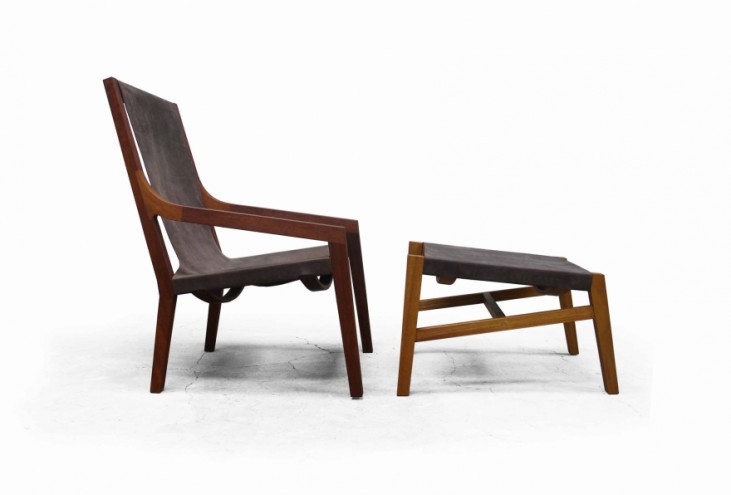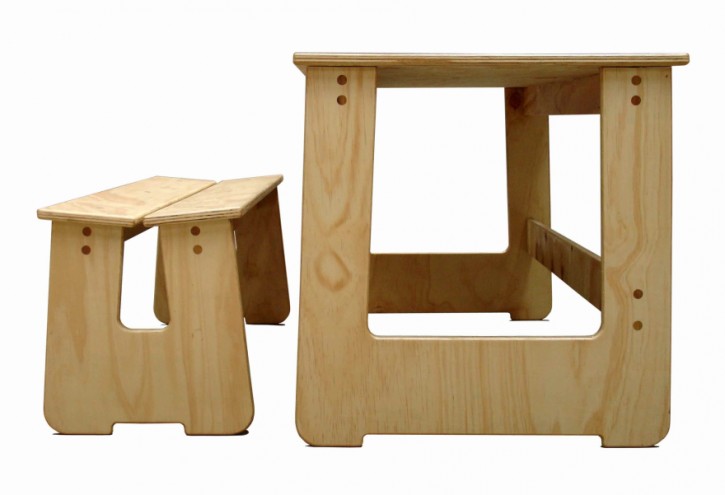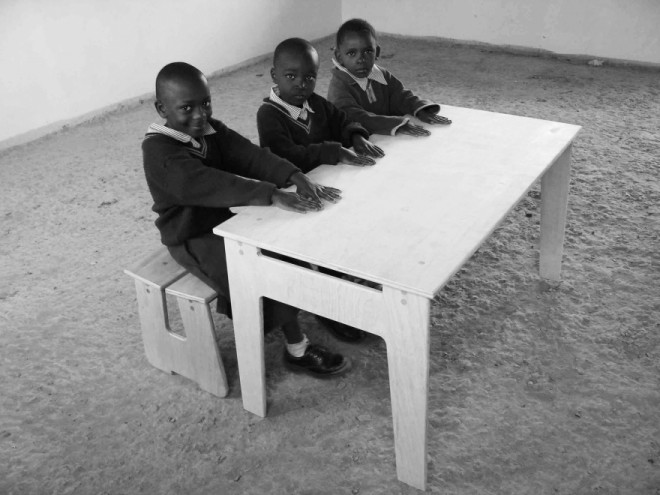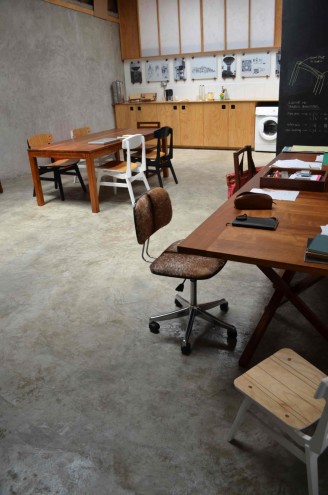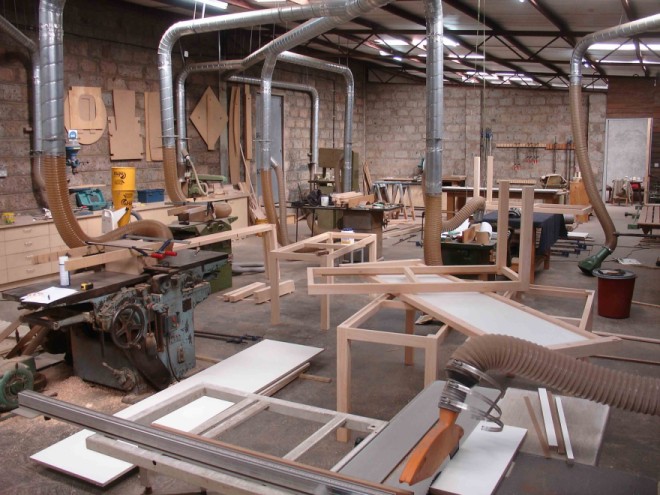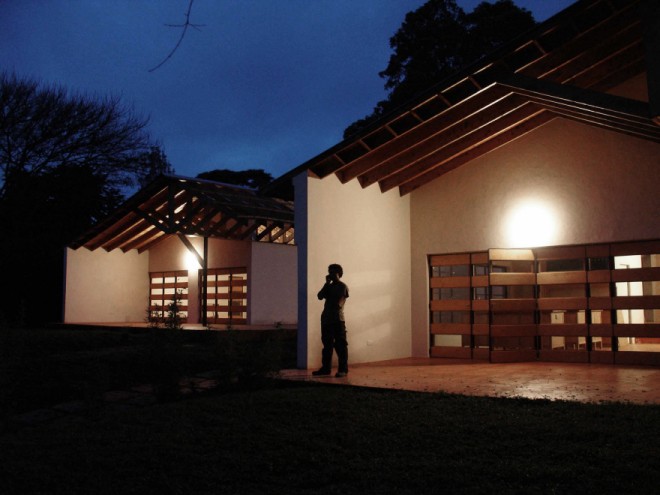From the Series
“I was a beekeeper,” says Naeem Biviji of his life before he returned home to Nairobi nine years ago with his wife, Bethan Rayner. “I made beehives in Berwick-upon-Tweed.”
Biviji, who was born and raised in Kenya, decamped to this rustic northern English town, 90 kilometres southeast of the Scottish capital Edinburgh, to a farm called Chain Bridge Honey, shortly after finishing his architectural studies at the University of Edinburgh in 2004. Biviji’s time as a beekeeper in Northumberland is important to understanding the working of Studio Propolis, the two-person workshop he co-founded with his wife in 2005.
The studio, which makes bespoke interior furnishings and works on select small-scale architectural projects, takes its name from the resinous binding agent produced by bees to fix and varnish their honeycombs. Unlike beehives, which have a simple hierarchy – there is a queen bee, male drones for mating purposes and sterile female worker bees – Studio Propolis has no hierarchy. Biviji and his wife do all the work, mostly by hand, in a small workshop in a Nairobi industrial township.
Smallness, along with artisanal values, interpersonal relationships and slowness, is an important value at Studio Propolis. “I don’t have any aspirations to build big buildings,” says Biviji, who recently visited South Africa to attend the triennial world meeting of the International Union of Architects in Durban.
Making things in a workshop is deeply humbling. You make a chair, live with it, and after six months it fails. It is about slowness, he says.
“You have to live with the objects you make and really understand how they affect people in a space. Something as simple as a chair can give you a whole education.”
Biviji’s emphasis on artisanal thinking partly owes to his upbringing. He grew up in a family of engineers; his father owns a successful steel fabrication business in Nairobi. He however credits Alasdair Gall, an Edinburgh furniture designer and manufacturer, as his key influence. “He is an amazing craftsman,” says Biviji, who learnt not only furniture making while living in the UK, but also agricultural construction techniques.
While much of the studio’s output tends to be bespoke in nature, Biviji and his wife have a small product line, mostly chairs. These include the Hidechair, a wood-framed easy chair made from African woods and indigenous Kenyan leather. The chair’s trim, mid-century modern design recalls the simple utilitarian lines of the furniture made by Finnish architect Alvar Aalto. Unlike Aalto, whose late career was marked by large-scale architectural projects, Biviji is reluctant to think big just yet – in physical scale at least.
“Working so closely in a studio environment I have increasingly realised that a lot of the games that architects play are formalistic,” he offers by way of reflection on his decision to maintain a small-scale studio.
We live in an age where everything has to be different and we have to express ourselves differently. This is all that the architect has power over now: the expression of form, Biviji adds.
Even the components that are key to expressing an architect’s individual vision are these days made by someone else, he says. The artisanal craft of making a building has become lost in large-scale architecture. “We’ve become specifiers.”
Words like apprenticeship and materials are important to Biviji. Recently, as a response to the dwindling wood supply, the studio has increasingly incorporated steel into its architectural projects, for example producing its own bespoke window- and door-frames. Biviji does all the welding himself.
Working by hand, whether with wood or metal, keys into another of Studio Propolis’s core values.
For me, it is about developing an indigenous material culture and skill base in a country where we don’t have such a strong vernacular tradition to fall back on – not like in Mali at least, he says.
One of the studio’s current projects involves the design and fabrication of a set of doors, pews and a bishop’s chair for a Catholic cathedral in the highlands west of the Kenyan Rift Valley. They may seem like small contributions to the larger architectural project but, as Biviji insists, “working at a small scale” still entails grappling with “big issues” that are not unconnected with his formal training. Studio work, he explains, touches on a host of issues that matter: from the way architects are educated nowadays through to the apprentice system and what it takes to manufacture an architectural feature.
Interpersonal relationships – in particular, the ability to deal directly with end-users and address their specific needs – are important to Studio Propolis. “For us it is about people and relationships,” says Biviji. “It is not about making furniture, which you can buy anywhere and for cheaper. For us the reason to make is that very intimate relationship we have with the people we get involved with.”




